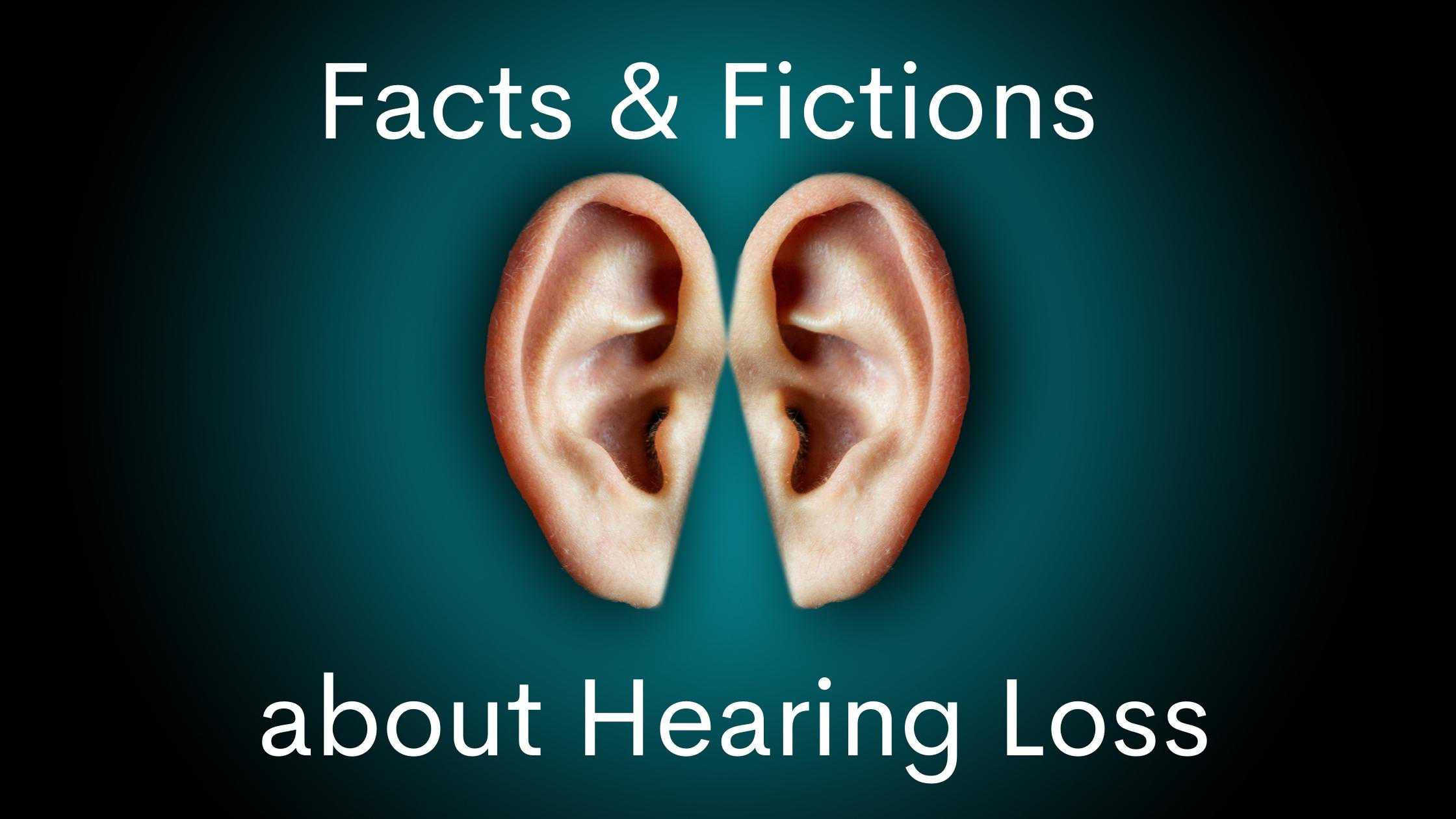We use our sense of hearing all day, every day and it is critical to how we understand and interact with the world. Despite this, misconceptions about hearing health are rampant in our culture. To protect your hearing from hearing loss, and to know when to treat a hearing issue, education is key. Let’s take a look at some common hearing myths.
Fiction: Your hearing can heal itself.
Fact: After exposure to dangerously loud noises, many people develop tinnitus or a ringing in the ear. Tinnitus is an indicator that something has been injured in your hearing. However, the dispelling of the tinnitus does not mean that your hearing has “healed”. Human hearing relies on delicate sensory cells called “hair cells” that line the sides of the inner ear. It is the job of these cells to detect incoming sound waves. Loud noises can stress these cells past their breaking point, however, and when these hair cells sustain damage they have no way of repairing or replacing themselves. Instead, injured hair cells are simply taken out of commission, making our hearing a little less accurate with each hair cell we lose.
Because of this, most hearing loss is permanent and cannot be reversed. When the amount of damaged hair cells is significant, you experience hearing loss. While hearing loss can be effectively treated, it cannot be “healed” or “reversed”.
Fiction: You can only develop hearing loss when you are older.
Fact: Significant hearing loss can happen at any age, with loud noise exposure being a major contributing factor. Currently, Gen Z is developing hearing loss earlier and at a much higher rate than any generation previously with around 17% of young adults living with some degree of hearing loss.
Because hearing damage accrues throughout our lifetime, chances of significant hearing loss rise as we age. This doesn’t mean, however, that you can wait to protect your hearing. The hearing damage you expose yourself to today will be something you carry your whole life. By ignoring your hearing protection, the onset of hearing loss can come much earlier than you expect.
Fiction: If you can hear sounds, you don’t have hearing loss.
Fact: Many people are surprised by how hearing loss manifests. Most often, hearing loss does not mean silence. Instead, you are hearing sounds and speech around you, but with less clarity and detail. Often, you can detect speech and even recognize the voice speaking, but words sound muted or muffled and it may be hard to discern the direction they are coming from. This again is due to the impairment of hair cells in the inner ear. Less functioning hair cells diminish the detail you can perceive in an incoming sound.
Noticing any significant change in the way you hear means it is time to visit your hearing specialist. Regular hearing exams can catch hearing loss early when it is easiest to treat.
Fiction: Hearing loss treatment can wait.
Fact: Misunderstanding how serious hearing loss is has led millions of people to delay treatment, sometimes for years. Ignoring hearing loss can allow it to worsen and has serious health consequences for your quality of life and your physical well-being.
Additionally, early treatment for hearing loss is the easiest time to adapt to hearing aids and other assistive devices. Waiting to treat hearing loss until it is “bad enough” often means waiting until irreversible changes have occurred in the fundamental way you hear. These changes in your hearing can be so major that sometimes learning to use hearing aids requires retraining your brain how to hear.
Fiction: I’ve waited too long to get hearing aids.
Fact: Hearing loss treatment is easier the earlier hearing loss is addressed, but it can help most people with hearing loss, even if your hearing issues have gone untreated for years. Waiting to address hearing issues can allow them to worsen and make it harder to adjust to treatment, but treatments such as hearing aids will still make speech more legible and sound easier to detect. Using hearing aids can make conversation less frustrating and more fluid. Treating hearing loss can also alleviate many of the health risks that come with untreated hearing loss and benefit your quality of life.

